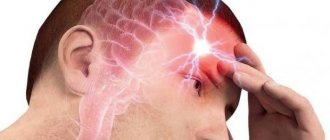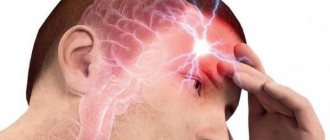Vegetative-vascular dystonia is manifested by functional disorders of various organs and systems. In most cases, they do not require drug correction. You can improve your quality of life by following a diet and eliminating bad habits.
The Yusupov Hospital has created all the conditions for the treatment of patients suffering from vegetative-vascular dystonia:
- the wards are equipped with central ventilation and air conditioning;
- doctors use innovative methods for treating VSD;
- medical staff is attentive to the wishes of patients;
- cooks provide dietary meals.
The diet for VSD is balanced. The menu includes dishes containing sufficient amounts of protein, vitamins, and microelements. Their organoleptic properties and aesthetic appearance are no different from home cooking.
Complex treatment of VSD begins with non-drug methods. The patient is asked to change his lifestyle, stop drinking alcohol, coffee, strong tea, and energy drinks. Rehabilitation specialists provide complex therapy for VSD, aimed at restoring the function of the autonomic nervous system.
Nutrition rules for VSD
The diet for VSD depends on the patient’s weight, manifestations of digestive dysfunction, and the patient’s gastronomic preferences. Particular attention is paid to the diet of overweight patients. Rehabilitation specialists offer an individual weight loss program. It includes not only dietary nutrition, but also physical therapy, some sports, and a water regime.
For all patients suffering from changes in blood pressure, doctors recommend:
- streamline your diet (meals should be taken at approximately the same time, eat at least 6 times a day in small portions);
- limit the consumption of fats and easily digestible carbohydrates;
- avoid fried foods, smoked foods, fast food;
- limit alcohol consumption;
- give preference to foods that are sources of fiber (whole grain pasta, vegetables, leafy greens, legumes, fruits, nuts, oatmeal, bran, seaweed);
- add linden blossom, hop cones, peppermint or lemon balm leaves to the tea brew (they regulate hypothalamic-visceral interactions, normalize sleep, and reduce irritability).
In case of hypertensive form of VSD, you should:
- limit coffee consumption to 2-3 cups per day, replace strong tea or coffee with cocoa, which contains flavonol, which reduces blood pressure;
- reduce the consumption of alcoholic beverages, give preference to red wine, which contains antioxidants;
- avoid dishes that stimulate the central nervous system (rich fish and meat broths);
- reduce the daily amount of table salt to 4–6 g, not using it when cooking, but adding salt to ready-made dishes, or using hyposodium salt and its potassium substitutes;
- increase in the diet the proportion of foods that are sources of potassium (eggplant, baked potatoes, apricots, paprika, grapes, tangerines, cottage cheese) and magnesium (buckwheat, nuts, wheat germ, bran, sesame).
For patients suffering from the hypotonic type of VSD, nutritionists recommend eating foods rich in vitamin C and drinking rosehip decoction. They should avoid fasting diets and fasting days. Food should be taken every 3 hours in small portions. It is necessary to drink at least 1.5 liters of water per day, since fluid is necessary to maintain a sufficient volume of circulating blood.
Products should contain large amounts of ascorbic acid. There is a lot of it in black currants, gooseberries, bell peppers, citrus fruits, sea buckthorn, rutabaga. It is necessary to use fruits and vegetables with bioflavonoids, which improve the elasticity of blood vessels (beets, paprika, oranges). Don't forget about leafy greens, dill, and celery. Their essential oils dilate blood vessels. Freshly squeezed juices from these vegetables and fruits are beneficial. It is not recommended to use tonic spices (turmeric, ginger, cinnamon, chili pepper) in the preparation of hot dishes, desserts, side dishes, and baked goods. Knownly salty foods should be avoided.
What happens immediately after drinking alcohol?
Ethyl alcohol is very quickly absorbed both from the stomach and from the oral cavity. Therefore, even after savoring half a glass of liquor, a person will feel the insidious effects of alcohol within a few minutes.
First, ethyl alcohol dilates blood vessels, which has a good effect on the well-being of patients with VSD of the hypertensive type. It seems that a spasm of the blood vessels in the head instantly passes, and the “iron vice” squeezing it weakens the pressure. Outwardly, this manifests itself as redness of the face. Indeed, blood flows into the dilated capillaries and the patient feels warm, comfortable and at ease.
Those who suffer from VSD with low blood pressure also do not experience a deterioration in their well-being. The fact is that alcohol dilates only small capillaries and mainly the vessels of the face. Coronary blood circulation in the first stages remains practically unchanged.
At your first consultation with a neurologist, you will most likely hear a recommendation to stop drinking alcohol at this stage. The positive effect of alcohol on the well-being of a patient with VSD is limited to just one glass of strong drink or half a glass of dry wine.
VSD and smoking
A sign of vegetative-vascular dystonia is tachycardia - rapid heartbeat. When smoking, the heart rate increases by 20-3 beats per minute. The carbon monoxide that cigarette smoke brings into the body reduces the amount of oxygen reaching vital organs. Oxygen starvation negatively affects the functioning of the heart.
Under the influence of tobacco smoke, blood clotting increases, increasing the risk of blood clots, stroke, myocardial or lung infarction. Nicotine reduces the level of the hormone prostacyclin and causes damage to cell membranes. This worsens the condition of the patient suffering from VSD.
Under the influence of nicotine, the concentration of cholesterol in the blood increases, the level of blood lipids and beta lipoprotein increases. This contributes to the formation of atherosclerotic plaques, which prevent blood flow to the heart. Functional vascular disorders in VSD are transformed into organic vascular damage.
After smoking a cigarette, the heart muscle works faster, blood pressure rises and the pulse quickens. Small blood vessels spasm under the influence of nicotine. Peripheral blood flow is disrupted, palpitations occur, and pain in the heart area may appear.
The respiratory form of vegetative-vascular dystonia is accompanied by respiratory distress. Patients experience suffocation, a feeling of lack of air, and dissatisfaction with inhalation. When smoking, the patency of the airways is impaired, and the symptoms of respiratory failure with VSD become more pronounced. Psychologists at the Yusupov Hospital help patients quit smoking. If the patient is determined to quit smoking, reflexologists conduct a special course of acupuncture. Sports, gymnastic exercises, and breathing exercises help to give up bad habits. The senior instructor-methodologist of the rehabilitation clinic conducts individual and group classes with patients suffering from VSD.
Is it harmful to drink alcohol with autonomic dysregulation?
Ethyl alcohol destroys brain neurons and disrupts the mechanism for the synthesis of neurotransmitters, which are responsible for transmitting impulses. The autonomic (autonomic) nervous system cannot normally coordinate the work of internal organs. There are malfunctions in the functioning of the digestive, respiratory systems, heart and blood vessels, problems with thermoregulation. In dystonics, intoxication occurs quickly, and the hangover is severe.
The functioning of the autonomic nervous system is equally negatively affected by strong and low-alcohol drinks.
Literature:
- Vegetovascular dystonia. Modern view of treatment and prevention / E. B. Bereslavskaya. - St. Petersburg. : Ves, 2005 (GIPC Lenizdat). – 155 s.
- How to help patients diagnosed with vegetative-vascular dystonia? / Veronika Aleksandrovna Golovacheva / 2021 / Consilium Medicum
- Psychosomatic medicine: hands. for doctors / P. I. Sidorov, A. G. Solovyov, I. A. Novikova; edited by P. I. Sidorova. - Moscow: MEDpress-inform, 2006 (M.: Printing house "News"). – 564 p.
Need some advice?
OR CALL A DOCTOR
CALL!
+7
How does intoxication with dystonic complaints differ from “normal”
Dystonic manifestations due to intoxication:
- tendency to hysterical reactions;
- inappropriate behavior with attacks of aggression, malice from doses that do not cause similar reactions in other drinkers when used occasionally;
- gastrointestinal disorders (diarrhea, neurogenic vomiting, hiccups, pain);
- loss of consciousness due to a sharp redistribution of blood in the body and spasm of the arteries of the brain;
- rapid transition to the oppression phase.
Sobering up in such people is more difficult, the clinical picture of poisoning with half-life products of alcohol is more pronounced. The doctor has to put more effort into stopping the binge.
Possible risks
Alcohol and VSD of hypertensive and mixed types are incompatible things. When the functions of the nervous system are disrupted, it provokes the development of negative consequences. Patients with vegetative-vascular dystonia quickly develop a harmful addiction.
Consequences:
- tachycardia, arrhythmia;
- a sharp jump in blood pressure, hypertensive crisis;
- stroke;
- heart attack;
- outbursts of aggression;
- kidney and stomach diseases;
- depressive states.
In some concomitant pathologies, drinking alcohol provokes internal bleeding. To reduce the risk of a crisis, alcoholic drinks should be taken with jelly.
This product contains glycine, which improves microcirculation.
Ethanol reacts with drugs prescribed for the treatment of VSD. This leads to the development of pronounced side effects.
Panic attacks
Unreasonable panic attacks are a serious pathological condition, diagnosed in 45–50% of dystonics.
The disease is accompanied by sudden causeless fear and various somatic symptoms. Main manifestations:
- heart rate increases;
- dyspnea;
- compresses the chest;
- increased sweating;
- frequent urination;
- migraine with visual aura;
- muscle tension, numbness of the limbs, tingling in the occipital region;
- dizziness.
With unreasonable panic, concern for life and health arises. During an attack, it is impossible to think rationally, concentrate, or make informed decisions.
An attempt to stop a panic attack with alcohol during vegetative neurosis leads to the development of psychoneurological disorders.
The consequences are prolonged depressive states, isolation, detachment from real life, apathy, suicidal thoughts.
Hangovers and autonomic dysfunction
Often, exacerbation of vegetative neurosis occurs against the background of withdrawal syndrome.
Even if before this the disease was in stable remission. The main manifestations are severe migraine, panic attacks, tachycardia. Due to a significant increase in pressure, you may feel dizzy and faint. The person becomes apathetic or overly excitable. Additionally, there is pain in the abdomen, chest, frequent attacks of nausea and vomiting.
Against the background of a severe hangover, depression develops, panic attacks become regular and intense.
Alcohol is dangerous. Especially with hypertensive and mixed types of disease. Abuse provokes the development of coronary pathology and chronic heart failure.
These diseases lead to disability and death.
What symptoms do patients with VSD experience?
The most common complaints concern:
- unstable emotional state, neuroses, depression;
- blood pressure surges;
- hormonal imbalance;
- endocrine disorders;
- pain in the heart.
Patients with VSD often note that their heart beats very fast, their palms sweat, and they feel dizzy. Their blood pressure rises and falls. Fingers tremble uncontrollably.
The level of vital energy drops. There is often a feeling of a lump in the throat. Then it becomes difficult to breathe and swallow. Hiccups, cramps, flatulence, pain of any localization - all these are also manifestations of VSD, and alcohol always intensifies such symptoms.











